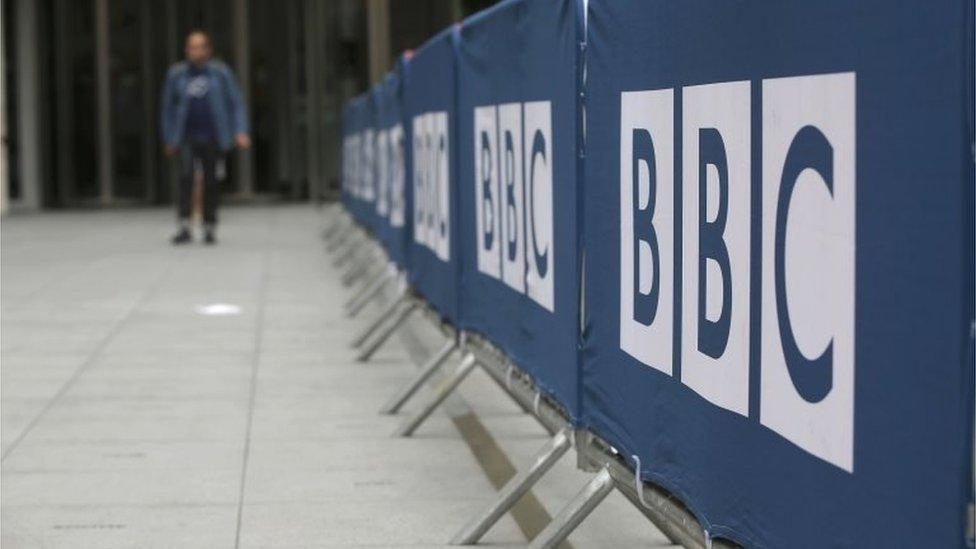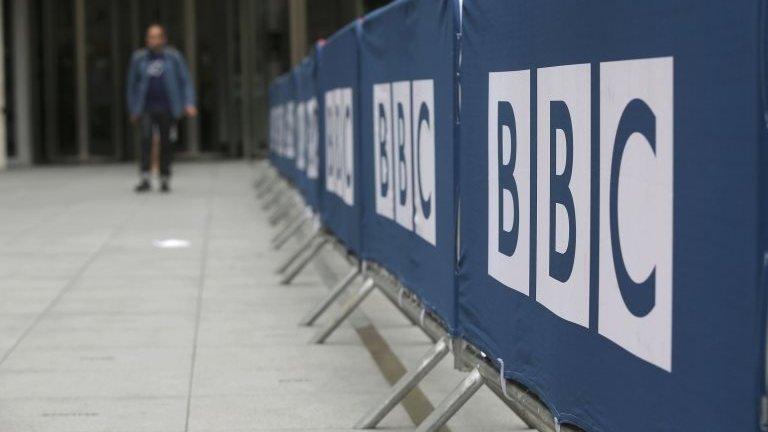Why 2016 is an important year for the BBC
- Published

Director general of the BBC, Tony Hall, appears before Holyrood's culture and education committee. Find out why he was speaking to MSPs and why 2016 is an important year for the broadcaster.

Why are politicians focusing on the BBC this year?
The way the BBC operates is reviewed every decade or so. The corporation, which was established in 1922, is now undergoing its ninth such review.
Unlike most other public institutions, the BBC was created by a Royal Charter, external rather than an act of parliament. It was designed that way to emphasis the broadcaster's independence from the government of the day.

What does the BBC's Royal Charter do?
It is in effect the constitution by which the corporation is run. It sets out the public purposes of the BBC and outlines the duties of the BBC Trust and the Executive Board. Accompanying the charter is an official "agreement", detailing the BBC's editorial independence and its public obligations, which is established between the BBC and the UK government's culture secretary.
The current Royal Charter and Agreement came into effect on 1 January 2007 and are due to expire on 31 December 2016.
Ahead of renewal there will be months of discussion about the BBC's future, external, including what it should be doing and how it is funded.
The House of Commons, House of Lords and the UK's devolved parliaments will have their say, but it's the Commons that gives final approval.

Who decides how much the licence fee is?
The government sets the level of how much people pay. The fee is currently £145.50 per year and should be paid by people viewing live TV from any source, be it the television in the corner of the living room or a portable device such as a phone.
In 2010 the government decided to freeze the licence fee at £145.50 until 31 March 2017.
People aged 75 and over do not pay and there are concessions for the blind and some people living in residential care.
As part of its charter discussions, changes to the way the corporation is funded will be looked at.
The government has said the "licence fee has proven to be a remarkably resilient source of revenue for the BBC - providing £3.7 billion of public funding last year".
But it also added that it was committed to bringing forward legislation "in the next year to modernise the licence fee" in order to cover Public Service Broadcast (PSB) catch-up TV.

Who is being consulted about the BBC's future?
The UK government started the process in the summer last year when it appealed for the public to give its views. MPs and peers, as well as politicians in Scotland, Wales and Northern Ireland, are also debating the issues. The timetable so far has included:
16 July, 2015 - The UK government published a consultation document, external that ran until 8 October. The findings will be published by the government later in the year
22 July, 2015 - The BBC Trust issued an initial response, external to the government and launched its own public consultation
4 August, 2015 - Culture ministers from the three devolved administrations, external said they would work together to "ensure the process of BBC Charter renewal reflects and prioritises their shared interests".
7 September, 2015 - BBC management set out a series of proposals and initiatives
8 October, 2015 - The Trust published a fuller response to the government's discussion document
12 October, 2015 - Scotland's Culture Secretary Fiona Hyslop meets the BBC's Director General Lord Hall to outline the Scottish government's priorities for BBC Charter renewal, external
16 October, 2015 - The BBC published independently-analysed consultation and research findings on future funding options for the BBC
19 October, 2015 - The BBC Trust published independent research on the impact of BBC online on local newspapers, and the impact of BBC TV on news and entertainment programmes from commercial broadcasters.
5 November, 2015 - The Trust published research looking at BBC complaints handling, governance, and efficiencies
13 November, 2015 - The Trust published independent research looking at the BBC's purposes, values and scope.

What say will the Scottish government have on the BBC?
Charter renewal is conducted by the UK government, but it is recognised that the BBC has accountability to the devolved nations. Following the Smith Commission, external on more powers for Holyrood, a Memorandum of Understanding was agreed by which the BBC would lay its Annual Report and Accounts before the Scottish Parliament.
It also required BBC bosses to appear before Holyrood's committees, in a similar way to Westminster committees.
Separately, the Scottish government has made clear that it wants the BBC to operate under a new federal structure giving greater independence to BBC Scotland.
The SNP-led administration is also calling for the creation of new TV and radio channels for Scotland.
Holyrood itself has already begun discussing the future of the BBC and last week the education and culture committee heard evidence from media experts and trade unions.
It will continue its probing when the Director General of the BBC, Tony Hall, appears before members.
- Published16 July 2015
